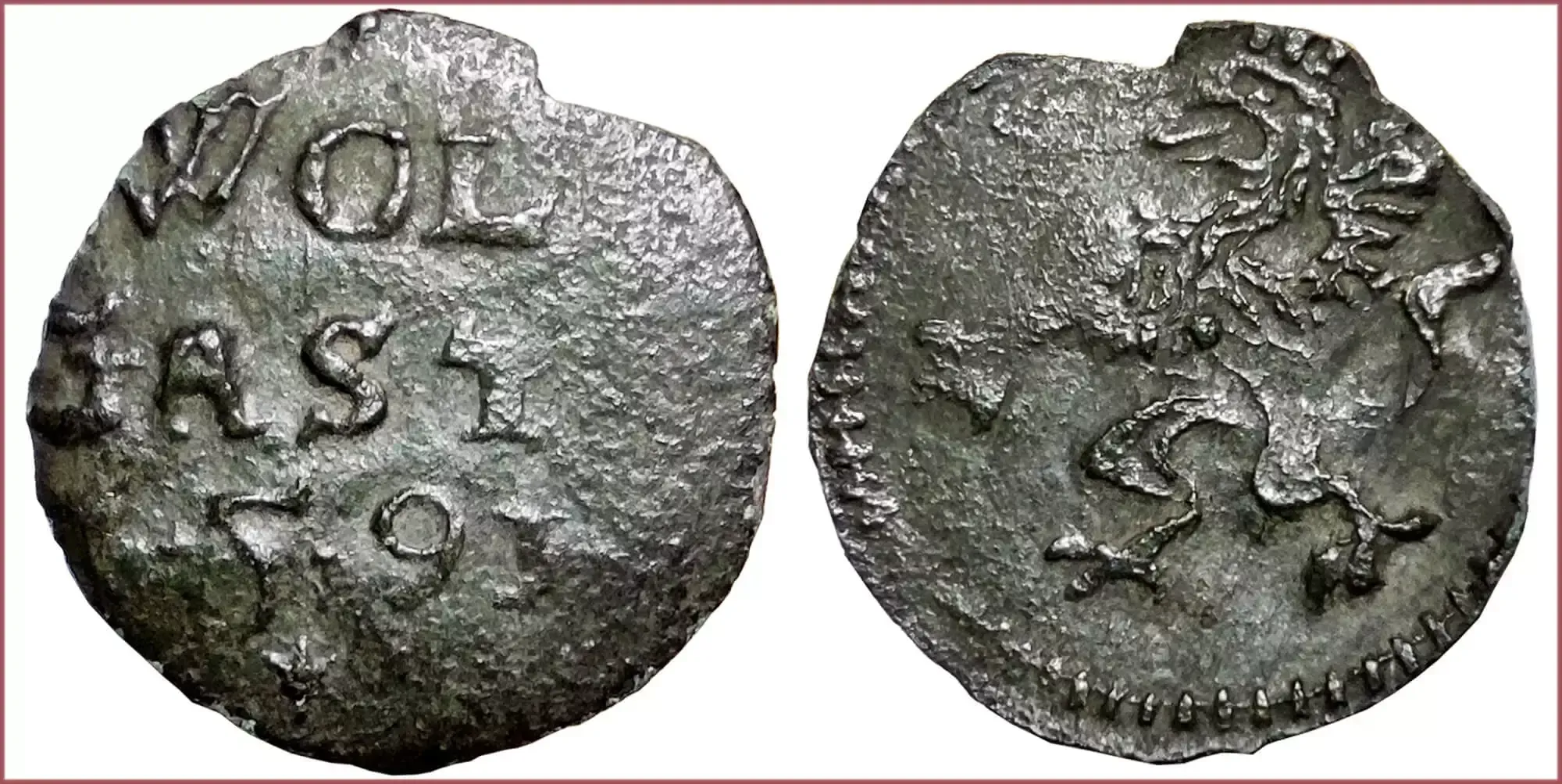SCHERF: COIN OF WOLGAST (GERMANY)
1 scherf, 1591: Duchy of Pomerania-Wolgast-Stolp
The Duchy of Pomerania-Wolgast-Stolp, also known as the Duchy of Wolgast and Stolp, was a feudal duchy in Western Pomerania within the Holy Roman Empire. Its capital was Wolgast. It was ruled by the Griffin dynasty. It existed from 1532 to 1625.
Ruler: Ernst Ludwig — duke of Pomerania-Wolgast from 1569 to 1592.
WOLGAST.
Pomeranian Griffin (griffin — legendary creature with the body, tail, and back legs of a lion, and the head and wings of an eagle with its talons on the front legs): heraldic symbol of Pomerania, the city of Wolgast and the Griffin dynasty, whose representative was Ernst Ludwig.
- Copper: 13 mm - 0.30 g
- Reference price: 15.3$
COIN SCHERF — WHERE & WHEN (coins catalog: by names & emitents)
- GERMANY (City of Berlin, City of Brandenburg, City of Erfurt, Free Hanseatic city of Hamburg, Free Hanseatic city of Lübeck, Duchy of Mecklenburg-Güstrow, Duchy of Pomerania-Barth, Duchy of Pomerania-Wolgast, City of Salzwedel, City of Wismar... — 15th-17th centuries): scherf = 1/2 pfennig
- LIVONIA (Bishopric of Dorpat, Archbishopric of Riga, Livonian Order — 15th-16th centuries): scherf = 1/2 pfennig = 1/54 ferding
SCHERF as coin name.
Scherf — historical German coin equal to half a pfennig (by the way, the heller had the same value in some places). It was produced mostly during the 15th-17th centuries. The scherf is usually considered one of the smallest of the many denominations of German coins.
The name scherf is probably related to the Middle High German word "scherben" which means "to cut in" and is therefore associated with "shard" or "fragment". First silver coins of this type had predetermined breaking points so that they could be physically divided into smaller values which, after being broken off, became "shards". If necessary, a 1-pfennig piece could simply be divided into two halves — scherfs.
The diminutive form of scherf is scherflein. This term has survived to this day in an German idiom "sein scherflein zu etwas betragen" ("to contribute one's little bit to something"). This refers to a small but commendable contribution.
By the way, in the Netherlands, the name of the smallest local coin — mijt — was used in the same context.











